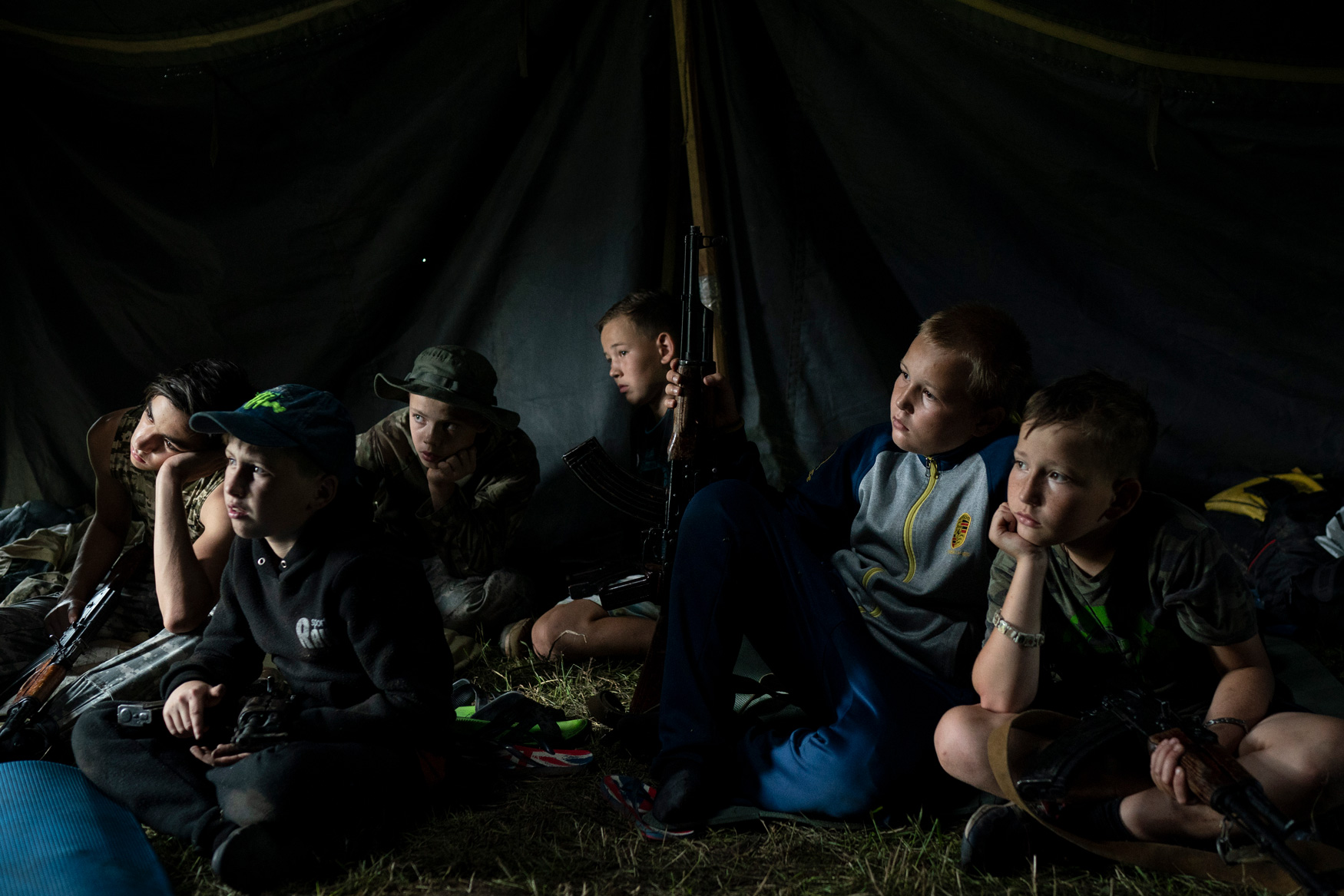Migrant families wait, torn between hope, grief

Barely 20 years old, Mariama Konte was neither widow nor wife.
For nearly four years, she told her two young children that their father is traveling for work. Only in the last few weeks has she begun to accept the possibility that Abdrahamane drowned at sea, like so many migrants from this dusty, impoverished corner of eastern Senegal.
She recently put on the veil of a widow and now must stay at home until a mourning period of four months and 10 days comes to a close. Mariama will not change clothes, work in the fields or eat meals with her husband’s family.
A man rides his motorcycle as people walk on a street on Nov. 26, 2018, in Goudiry, Senegal. (AP Photo/Felipe Dana)
Other families in the village who lost sons or husbands at around the same time mourned their loved ones long ago with the sacrifice of a sheep. Even after marking that milestone just weeks ago, Mariama wonders whether her husband is really gone.
“If he is not dead, then the sacrifice we made will maybe help us find him,” she says.
For Mariama and so many others in eastern Senegal, there is anguish in each day that passes without a phone call or wire transfer from Western Union. And how long does a woman wait for her husband to return before she is a widow?
Mariama was just 12 and Abdrahamane was 21 when she first came to Dougue. They had a daughter, and then a son, who was just a baby when Abdrahamane crossed into Mali and then Libya.
Mariama Konte, 20, sits with her daughter Maimouna, 7, and her son Ibrahima, 4, inside their home on Nov. 24, 2018, in a village near Goudiry, Senegal. Konte, who married Abdrahamane when she was 12 and he was 21, is living the consequences of the family’s decision in November to mourn him after nearly four years of waiting. (AP Photo/Felipe Dana)
Boys play table football, or foosball, on Nov. 26, 2018, in Goudiry, Senegal. (AP Photo/Felipe Dana)
A boy stand under a street lamp at dusk on Nov. 26, 2018, in a village near Goudiry, Senegal. (AP Photo/Felipe Dana)
From there, he called and asked his brother to sell off three of their father’s cattle for the money he needed to take the boat to Italy. It was in 2015 when tragedy struck for seven Dougue families whose sons were lured by the success of another group just a few years prior. None of the seven have returned. With the decision to hold funeral rites for Abdrahamane, only one family still holds out hope.
Abdrahamane’s father, grieving the disappearance of his son, died the following year. Now Mariama lives with her mother-in-law, her brother-in-law and his family. Abdrahamane’s brother Ousseynou tolls in the family’s peanut fields by himself to support not only his family but also his missing brother’s
“The work is very difficult,” he says. “Out here I am working alone and doing the work of two.”
A short motorcycle ride away in the town of Goudiry, 69-year-old Cheikh Fofana grieves his son’s absence, even while refusing to officially acknowledge he is dead.
Cheikh Fofana pauses while talking about his missing son during an interview on Nov. 26, 2018, in Goudiry, Senegal. Fofana grieves his son’s absence, even while refusing to officially acknowledge he is dead.(AP Photo/Felipe Dana)
Tidiane Fofana, center, is pictured sitting with friends, in Goudiry, Senegal. Tidiane was one of 18 children; though the only one who noticed when his aging father or widowed aunt needed help. It was Tidiane who wanted to reach Europe to earn enough so that his father would never again have to ride his bicycle to the family’s fields to work. (AP Photo/Felipe Dana)
Tidiane was one of 18 children — though the only one who noticed when his aging father or widowed aunt needed help. It was Tidiane who wanted to reach Europe to earn enough so that Fofana would never again have to ride his bicycle to the family’s fields to work.
“My child said to me, ‘If we don’t leave, how can things change?’”
Tidiane followed his older brother to Libya and then called in 2015 to say he would soon be crossing the Mediterranean.
An aerial view of the road that connects Senegal to Mali is seen, Nov. 28, 2018, near Tambacounda, Senegal. (AP Photo/Felipe Dana)
People sit outside in the shade in a village on Nov. 24, 2018, near Goudiry, Senegal. (AP Photo/Felipe Dana)
Cheikh Fofana sits in his house as his wife Khadiatou Toure, right, walks by on Nov. 25, 2018, in Goudiry, Senegal. (AP Photo/Felipe Dana)
Cheikh Fofana reacts while talking about his missing son as he sits inside his house on Nov. 23, 2018, in Goudiry, Senegal. (AP Photo/Felipe Dana)
Soon after, families throughout the region learned about a shipwreck that was worse than anyone had ever imagined. Twenty-eight survivors, out of as many as 1,100 who died on April 18, 2015, on board the overloaded fishing boat.
A stranger answered the phone when Fofana called the line again. The man said Tidiane had left for Italy.
Cheikh Fofana pushes his bicycle after working on a peanut field as the sun sets on Nov. 25, 2018, in Goudiry, Senegal. (AP Photo/Felipe Dana)
Cheikh Fofana's bicycle is parked inside his house on Nov. 27, 2018, in Goudiry, Senegal. (AP Photo/Felipe Dana)
Fofana works his fields alone every day. It is there where he prays, and there where he wonders what happened to his son. His wife is resigned — four years is a long time, she tells him. But he won’t let her carry out a sacrifice yet.
“We’ve never had anyone tell us if this person is dead, if this person is alive, anything,” he said. “I am always in doubt.”
Cheikh Fofana prays under a tree after working in a peanut field, as the sun sets on Nov. 25, 2018, in Goudiry, Senegal. (AP Photo/Felipe Dana)
Text from the AP news story, Migrant families wait, torn between hope, grief, by Krista Larson.
Photos by Felipe Dana





